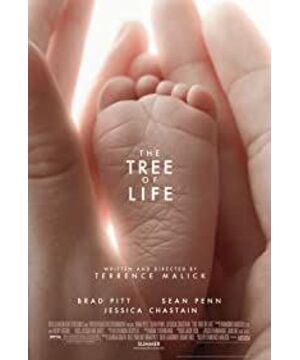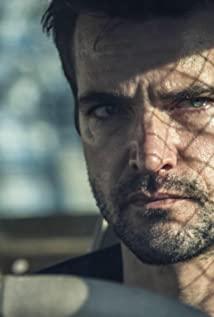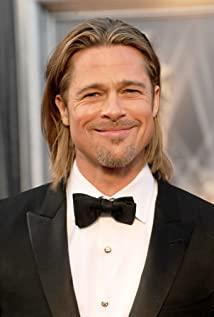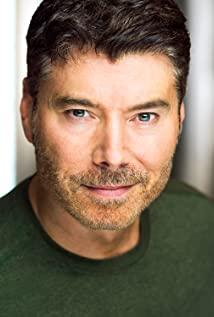Philosophy of Life - You Are Everything in the Universe for
forty years, five feature films, no matter the subject and era, all of them are clearly marked, Terrence Malick explored the limits of a real author and director, and was called "contemporary" by the New York Times. The Greatest Mystery in Cinema". Compared with those "assembly line operator directors" who surrendered to business, he ignored the box office and schedule all his life, and was willing to be a craftsman in the film industry. [The Tree of Life] is also the result of this creative inertia, but this time, he is telling his own story.
Hundreds of life rhythms
Terrence, who has Assyrian blood flowing, has always had an ancient contradiction. His films Wuwu always describe the struggle between people, races and races, and the nomads' closeness to nature. , so that this kind of martial arts is full of reflection, which in turn describes life. He fairly divides the lens between various forms of living creatures, not just people. His ex-wife summed it up for him: "He was devoted to the general public, and he was very enthusiastic about everything from ants to planets."
The "life" in Terrence's dictionary, first of all [thin red line] James Caviezel, The soldiers played by Sean Penn, while they were asking, "We used to be a family, but now we kill each other and ruin each other's lives", while charging; Lizards, dust, dead leaves...but the two were never separated, as in the [New World], when the British colonists first arrived in Virginia, talking about the natives, they said: "They visit often, they are friendly, Like a herd of shy deer."
And the saying of "the tree of life" is also a mysterious symbol of the Assyrian religion, a symbol of the origin of life, so the ubiquitous vitality is projected on the [tree of life]-Texas sits in the desert , The poetry of the area facing the sea, the daily life of the O'Brien family's lawn maintenance, the love and pity of Jack's father touching the newborn baby, the ordinary sorrow and joy of the death of his younger brother and Jack's exhaustion. The film eschews the spectacle of Terrence's predecessors and turns back to the simplest social unit: the family. The relatively simple background is exchanged for a more magnificent philosophical motif, and Jack's thinking is used to trace the process of life from single-celled organisms to multi-celled to intelligent bodies, and explore the ancient contradictions and solutions of human beings. Jack finally realizes that among the things that are right and wrong, only one thing is eternal, and that is that we are all but a fragment, and these fragments will produce miracles, precious and unparalleled. Jack's new understanding of life made him forgive his father and take a new step.
A kind of humanistic poetry
is also famous for its poetic lens and philosophical propositions. Angelopoulos is taking a non-trivial anti-dramatic route, a light style of "it is better to imagine than to know" in [Eternity and One Day]. . Terrence's film language is pure enough, and his four predecessors, which are few in number, are all about the simplicity and richness, and the more simple the more profound the truth. The protagonists of [Bad Earth], [Day of Heaven] and [New World] have all tried to get rid of the interference of "civilization", and in the end they will either surrender to society and live or die according to the laws of nature.
In [The Tree of Life], not only is Jack played by Sean Penn almost the same age as Terrence, who was born in 1943, but Waco, a Texas town where O'Brien's family lives, is also his birthplace. Here is a world of cruelty, and a step back is a small world of warmth, which is just stuck at the dividing point between modernity and tradition, just like Jack is stuck between the absolutely opposite educational concepts of his parents, between a dilemma and a hesitation. The high degree of substitution of times and backgrounds makes the director more and more handy in handling, not to mention that he is good at extracting the essence of humanity from ordinary life. This time, Terrence's two identities as the son of an oil worker and a top student in the Harvard Philosophy Department were finally seamlessly connected in the [Tree of Life].
Natural Philosophy - I have seen another world
Terrence's life philosophy proposition must fall back to nature, no director is more keen to go into nature than him, to shoot all things in the world - human, animals, plants... His every Every movie has scenes of people dancing in the virgin jungle and idyllic countryside. Werner Herzog can't pinpoint the golden ratio of the unity of people and scenery like him. In Terrence's view, nature restores the most primitive and moving state of life. It is a microscope for understanding life, and it is also the only way to return a life that deviates from its essence to its pure originality.
The Paradise of Eden
Terrence Malick will always remember the words of his Harvard philosophy teacher Stanley Cavill: "The world we see is not what it really is. It is a world that human beings cannot recognize and share." Since then Terrence is chasing a Garden of Eden since the beginning of time. In the first movie [Badlands], the fugitive Hawley murmured: "That world is like a distant planet, where there is laughter and laughter everywhere." Terrence was still on the road of philosophy. Running wildly, he still didn't know what utopia the planet was, and was only looking for it in the boundless nature. He let the heroes and heroines of [Badlands] and [Heavenly Days] roam the western part of North America, the virgin jungles, ingest the vast and flat wastelands of South Dakota and Montana, swept the vast plains and wind-blown wheat waves, chickens, birds and dogs. Alternately, until twenty years later, he finally found the "best planet" - the indigenous world.
In Terrence's mind, indigenous civilization is the most ideal, just like Adam and Eve's Garden of Eden before they ate the forbidden fruit. More than once, he spit out that fascinating word, new world, from a character in the movie. In this new world, which is like the intermediary between human civilization and primitive nature, there is no excess human civilization, no greed and plunder, no hypocrisy and lies, only the natural jungle with beauty and cruelty, the primitive emotions of life, and human beings retain traditional virtues. Here the tired soldiers of the [thin red line] find a moment of peace, and the dying lives of the [new world] are saved. Yes, nature often plays a pitiful role in Terrence's films, but it also makes Terrence in awe. Human evolution surpassed imagination, and the development of earth's resources exceeded its capacity. Terrence asked the "psychic magician" soldier Werther: "Why are there so many wars in the world? Why do all things kill each other? Why do land and sea fight against each other? Is nature full of hatred? Is good and evil co-existing?" Of course he knew the answer, nature was cruel, locusts descended on the whole farm [Day of Heaven], and the cruelest part of nature is that human beings can never satisfy their desires and keep stealing Eat the forbidden fruit.
[The Tree of Life] returns to the idyllic world of the American countryside in the first half of the twentieth century, and this time, Terrence discusses the disappearance of the Garden of Eden with the development of human society. "Salon" magazine film critic Stephanie Shakri once said: "Terrence Malick may not care so much about people, but there is no tree he does not love." [The Tree of Life] This "tree", The small meaning, as the root of the family, always leads the joys, sorrows and sorrows of the protagonist Jack's family; while the big meaning rises to the height of the universe of life, to the destruction and rediscovery of the human garden of Eden. Jack's torture of life runs through the birth and death of the entire universe, making Terrence's "world" span countless fantasy places, from the ancient prehistoric world, the world inside the cell, and the human race from aboriginal to modern civilization. A few epochs, billions of years later, the alien planets that humans have inhabited. Considering that James Cameron's construction of Pandora is only based on the Indian indigenous world, one cannot help but ask Malick, who believes in the multiverse theory, what kind of inspection and contemplation of the world has been made to have such a high level imagination?
poetic picture
The reason why Terrence Malick is Terrence Malick is, on the one hand, these philosophical thoughts about life and nature; The same, has a poetic visual language. He multiplied the propositions that he has been discussing with magnificent original and poetic images. And his films, almost every one of them, can win photography awards.
The poetry and epic of this picture is both sentimental and calm and rational. [Bad Land] The western plains under the setting sun, [Paradise Day] oil painting-like scenery and burning wheat fields, [Thin red lines] All things on the island sigh and life is charred, [New World] The perfect virgin land of the American continent, the spirituality of nature is surrounded by to the maximum. Vegetation, animals, the sky, the sea, any part of nature, all exist calmly. At this time, Terrence maintained absolute calm, just like when the [thin red line] soldiers landed on the island, A coconut lay quietly on the sand, away from human intentions. And when the soldiers evacuated the island and returned to the landing craft, we heard Werther's final voice, this time, from the grave in the earth: "My soul, let me believe in God, see the world through my eyes, see you All things created radiate the radiance of life." In the whisper, the camera swept across the rustling island, rustling, and the philosophical thinking that Terrence's language could not express was so intuitively and quietly conveyed.
Like all Terrence films, [The Tree of Life] is filled with a large number of narrations of the protagonist Jack, some beautiful, some depressing, some obscure, all these narrations need to be conveyed by pictures. Emmanuel Lubezki, the official photographer of Alfonso Cuarón, worked with Terrence for the second time after [New World]. He was already familiar with his style. , In addition to the proposition of human beings and nature, it is necessary to penetrate the microscope into the microscopic world of life - the cell unit, and extend the telescope to the macroscopic universe - the alien planet. This is not a problem for Lubezki, who has works like [Son of Man], but Lubezki is still a little surprised by Terrence's unconventional way of shooting: "Terrence seems to have no dialogue with the actors. Not interested, they said their lines, we patted the wind, patted the panes, patted the echo, and we didn't pan the camera until they were done talking."
Terrence's painstaking work on the [Tree of Life] can be seen from the carefully crafted pictures, the proportion of light, the color of the land, the outline of the sky, the glow of the horizon, the whispers of the leaves, everything is still the same. Terrence style, the only difference is that these things that used to be the background have become the body of the film this time - in the process of Jack's torture of life, all natural things are important roles, and this prompted the birth of the IMAX version of the film . This is probably the first Hollywood IMAX film so far that has nothing to do with special effects and dazzling skills. High-tech has been given another meaning here in Terrence, and it can't help but make people feel an uproar: how exquisite the picture is in a literary film, Can it stand the test of IMAX? ! Terrence did it. Before the Hollywood business mechanism, he was the real God.
View more about The Tree of Life reviews











